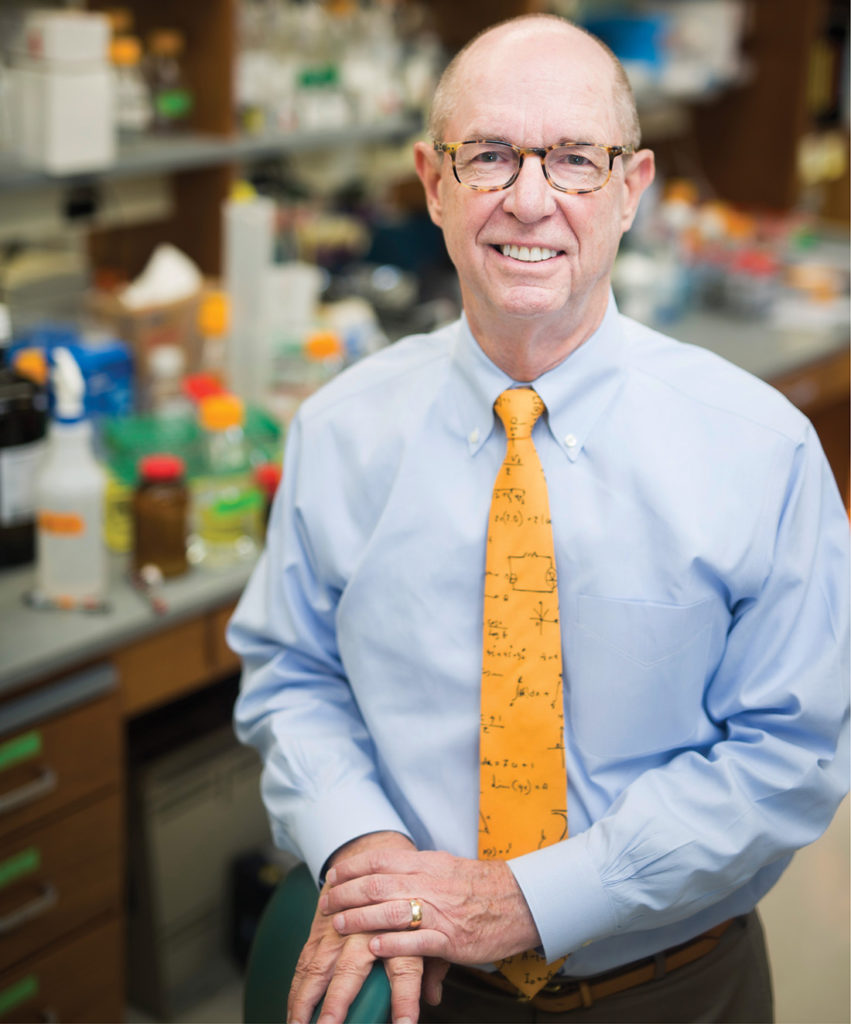Vanderbilt commits to supporting the basic sciences in a way that has other universities taking notice
In April, when the fiscal separation of Vanderbilt University and Vanderbilt University Medical Center was completed, Larry Marnett—the University Professor of Biochemistry, Chemistry and Pharmacology and Mary Geddes Stahlman Professor of Cancer Research—assumed a new role as the School of Medicine’s first dean of basic sciences, reporting directly to the provost. Vanderbilt Magazine sat down with Marnett to learn more about his new role and what it means for the university.
First things first: What are the basic sciences? Why are they so important?

Basic science is the discovery of how things work at a very fundamental level, asking questions based on curiosity, interest in a process, interest in a disease—trying to discover the fundamentals of why a cell goes bad. It can involve studying a single molecule, either by itself or in the natural system of which it is a part. Or it could involve studying how cells communicate with each other in their neighborhood or with cells in remote parts of the body.
A classic example from Vanderbilt’s past is Stanley Cohen, who won a Nobel Prize for his discovery of epidermal growth factor. He identified the receptor for it on the surface of cells, and he worked out many of the pathways by which its signal is transmitted from the membrane to the nucleus. Then people began to discover this was a critical pathway in the control of cancer cell growth.
Now, some 30 drugs are on the market that work in some way by altering the pathway of signaling by epidermal growth factor or other growth factors. It had a huge impact. But none of it would have been possible without the very basic knowledge he generated.
The basic sciences usually don’t get their own deans at other schools of medicine. Why is it different at Vanderbilt?
Most basic biomedical departments are in medical schools, as we are—we’re faculty of the medical school—and their operating budgets are paid for by the medical school, which can be supported by a medical center. But support for basic science has been going down because of changes in the health care market and also reduced funding for basic sciences by the NIH.
Chancellor [Nicholas S.] Zeppos, School of Medicine Dean [Dr. Jeffrey] Balser and Provost [Susan R.] Wente were committed to stabilizing funding for basic science, and providing it a home that aligns with its mission—which is fundamental research and graduate training. So they created this interesting model whereby the five departments, affiliated centers and core facilities that make up the basic sciences, as well as all graduate training, were put into this unit whose operations would be funded and managed through the university. That was a very significant goal and a result of the VU–VUMC financial separation.
The university’s funding model gives us incentives if we get more grant support and find other revenue streams such as philanthropy or licensing and royalty revenue that will further stabilize the funding for us. It’s a very interesting model, and many other universities are watching what we are doing.
And what are the benefits of this new model?
One thing, which is aligned with the Academic Strategic Plan, is that there will be more interactions across the colleges. Interactions between the School of Engineering and College of Arts and Science are already ongoing, and that’s something we’re going to continue to pursue. We’ll also have more opportunity to participate in undergraduate education and trans-school education. But at the same time, we’re going to maintain our close collaborations with our colleagues in the other departments of the School of Medicine. That has been a traditional strength of ours, because it provides a way to apply the fruits of basic science in a translational fashion and helps us identify important problems to work on.
The basic sciences are leaders in training graduate students. What is your vision for future graduate education efforts?
The dean of the Graduate School, Mark Wallace, comes out of the School of Medicine and the Vanderbilt Brain Institute, so he’s got a really good understanding of how we do graduate training in the basic sciences. He’s working closely with us to identify best practices and new opportunities for things that can be done throughout the university. I’m excited to work with Mark in our new roles.
Larry Marnett was interviewed by Liz Entman, public affairs officer for Vanderbilt University News and Communications.